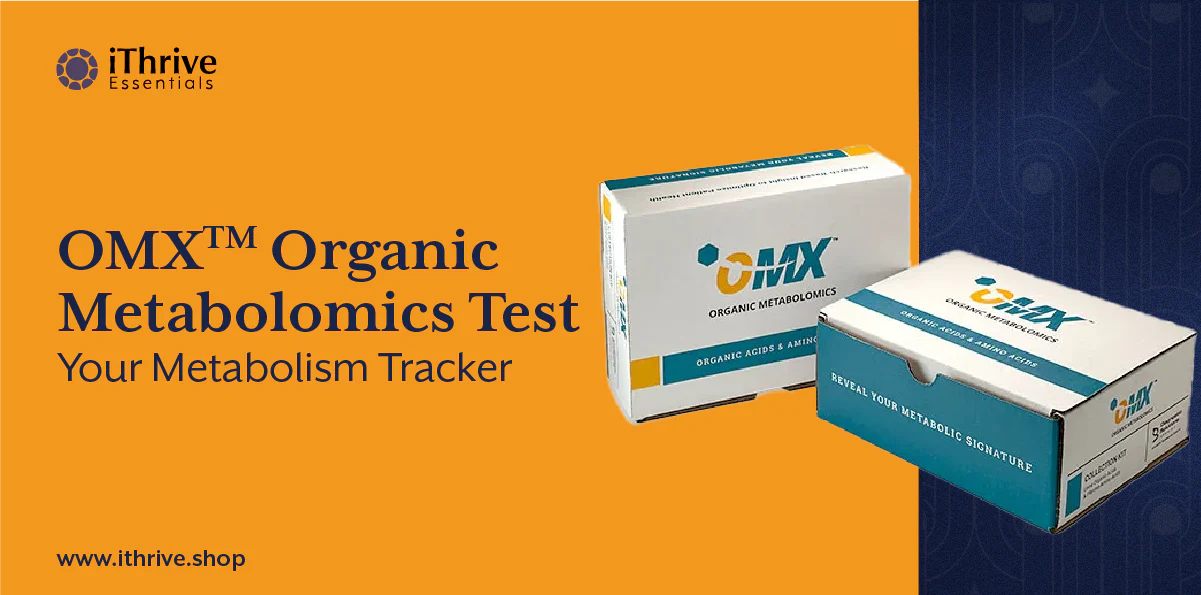
Re Activate - Your B-Complex
A complete 360 on your B-vitamins, simplified just for you.
What makes B complex such an essential supplement?
Your body requires vitamin B to survive.
Like a plant grappling for sunlight, your body needs this particular vitamin, primarily because, like all good things - its lifespan is temporary.
B vitamins are water soluble, meaning that they are not stored in one’s body (with vitamin B12 and a fat soluble form of B1 being an exception). In fact, B vitamins are a part of the vitamin family which need to be replenished daily. Sound like a lot of work? Well, we say on the contrary.
Is it really worth the daily supplement?
B vitamins play a major role in almost all primary biochemical processes in your body; ranging from heart health maintenance to the production of red blood cells. Mainly in roles of digestion and production of energy, vitamin B manifests as 8 major forms: B1, B2, B3, B5, B6, B7, B9, and B12.
Everyday, your body passes water in forms of sweat and urine, and along with it - your B vitamins. A daily justified supplementation allows one to maintain their very own B-complex levels, allowing them to maintain a healthy cardiovascular health and an overall active lifestyle.
What happens to your body when you take B-Complex regularly?
Also see: Why is iThrive B-Complex such an essential supplement?
Each of these B vitamins have their own significant use, and when taken in as a whole, help in the breakdown of carbohydrate, fats and protein for the production of energy.
Vitamin B1 (Thiamine), though found in most foods, is adequately present in sources such as whole grains, pork, fish and yeast. Processed foods such as cereals, bread and dairy products are fortified with thiamine, due to it being partially removed during processing.
Thiamine is absorbed in the duodenum of the intestine, and converted into TPP (Thiamine Pyrophosphate). TPP plays an important role in the aerobic metabolism of glucose for essential energy production. Low thiamine levels lead to altered mitochondrial activity, and a lessened ATP energy production.
A deficiency in Thiamine can lead to Wernicke’s encephalopathy and Beriberi, with Korkasoff psychosis also being an outcome of alcoholism. Wernicke’s encephalopathy leads to altered mental status or brain lesions, while Korkasoff psychosis can lead to delirium and permanent memory loss.
Beriberi’s early symptoms include nausea, constipation, and fatigue. Symptoms can manifest as either wet beriberi or dry beriberi with the progression of the disease.
Treatment includes a dosage of 500 mg of thiamine intravenously (IV) 3 times daily for 3 days to be followed with 250 mg IV or intramuscularly (IM) once daily for 5 days or until clinical improvement stops (as recommended by The Royal College of Physicians).
Vitamin B2 (Riboflavin) is mainly sourced from eggs, dairy products, green vegetables, mushrooms and meat. Riboflavin is essential for synthesizing niacin (B3), folic acid (B9), and is the reason why your urine is yellow.
Riboflavin deficiency in the case of alcoholism, haemodialysis and liver disease. It can be mostly reversed through diet as well as supplementation. Alternatively, although rare, riboflavin toxicity can lead to angular stomatitis, liver toxicity, cheilosis, fatigue, anemia and depression. Riboflavin can be used to prevent cataracts and low homocysteine levels as well.
Vitamin B3 (Niacin) is found in both animal and plant-based foods, including soy nuts, seeds, legumes and grains. Many doctors have been known to prescribe vitamin D3 instead of pharmaceutical drugs, especially to people with high cholesterol and cardiovascular risk.
Niacin works as a precursor to nicotinamide adenine dinucleotide and nicotinamide adenine dinucleotide phosphate enzymes, which are essential for DNA repair and cholesterol synthesis.
Low levels of iron, riboflavin, or vitamin B6 lead to a lesser conversion of niacin from tryptophan, an essential amino acid.
Pellagra, caused by niacin deficiency is a rare disease characterized by the 3Ds: dementia, dermatitis and diarrhea; and if left untreated, even death. The nicotinamide form of niacin is preferred to treat deficiency because it does not cause flushing, itching, or burning sensations, becoming the most preferable method of niacin administration.
Vitamin B5 (Pantothenic Acid) can be sourced from almost all food sources available, with more substantial quantities present in fortified sweet potatoes, sunflower seeds or even infant formula. It is essential for the biosynthesis of fatty acids and especially coenzyme A.
Due to its availability in almost all dietary components vitamin B5 deficiency is very rare. Its deficiency only occurs during malnutrition, or if someone is taking medication that blocks the absorption of pantothenic acid.
Deficiency symptoms include arthritic pain, fatigue, irritability or headaches. There is no report of pantothenic acid toxicity with high intakes.
Vitamin B6 (Pyridoxine) is primarily found in beef and poultry, its vegetarian sources including starchy vegetables, fortified cereals and non-citrus fruits.
Its active form helps with the maintenance of normal levels of homocysteine, support of our immune function and ensuring proper brain health. Several medications interfere with pyridoxine metabolism, and pyridoxine deficiency is commonly associated with other B vitamin deficiencies.
As the most recently discovered vitamin, its range of benefits have just begun to increase, with symptoms of a weakened immune system, anxiety and a swollen tongue accompanying it as well.
Vitamin B7 (Biotin) is usually found within our integumentary system, as an integral part of our hair and skin components. It is found naturally in organ meats, eggs, fish, seeds, soybeans, and nuts and can be fortified through supplementation.
You may have a biotin deficiency if you:
- Have a metabolic disorder
- Are pregnant or lactating
- Eat too many egg whites
- Your baby is being fed formulas lacking in biotin.
Symptoms include hair thinning, a scaly rash around the eyes, nose, mouth and variations in your nails and skin.
Vitamin B9 (Folate) lies at the center of your neurological functions, playing an important role in DNA production and synthesis of red blood cells. Folate is present in plenty of foods, with the highest levels in dark green leafy vegetables, nuts, beans, dairy products, meat, poultry, grains, and brussels sprouts.
It helps in the conversion of homocysteine to methionine, which is essential for the prevention of megaloblastic anemia. Certain groups of people are more likely to have inadequate folate intake and deficiency, such as women of childbearing age and black women. Folate deficiency can lead to megaloblastic anemia, characterized by large erythrocytes with abnormal nuclei. Maternal low folate levels during pregnancy increase the chance of congenital birth defects or delayed fetal growth.
Vitamin B12 (Cobalamin) is synthesized by only bacteria, archaea, and the human microbiome, which is why most vegetarian Indians face a vitamin B12 deficiency.
Gastric acid helps in the release of cobalamin from animal protein, and its interruption can lead to megaloblastic anemia as well as other neurological disorders. Cobalamin is mainly required for red blood cell production, neurological function and myelin synthesis. It serves as a cofactor in DNA and RNA synthesis as well.
Deficiency may present as megaloblastic anemia, fatigue, low appetite, and neuropsychiatric symptoms. If not treated, neuropsychiatric illness and irreversible neurological damage may occur.
The most affected groups are older adults, patients with pernicious anemia, pregnant and lactating women, and those with gastrointestinal disorders. Individuals on a vegan diet should consider supplementation in addition to the geriatric population.
Why iThrive B-Complex?
In addition to the 8 essential B vitamins, we’ve added a bioavailable form of choline and inositol. This supports liver, gall bladder & brain health as well as a healthy fetal development and a resistance to PCOS.
There are eight B vitamins considered essential because your body cannot make them. Vegan and vegetarian diets tend to be lower in some of these essential nutrients. Those with certain genetic mutations, such as MTHFR or MTRR variations, may have difficulty obtaining them from food alone. Without adequate B vitamins, you might be struggling with low energy levels, elevated homocysteine levels, and inadequate methylation.
iThrive’s B-Complex gives you a solid foundation to build back your energy levels from the bone. We at iThrive believe in being pure, potent and proven. While discussions about B12 requirements and deficiencies are common among Indians and doctors, it is crucial to understand that other B-vitamins are equally important for overall health.
That’s why we confidently guarantee that iThrive’s B-Complex stands out from the rest. At iThrive, we believe in the uniqueness of our product, packed with features you’ve likely never seen before. Our supplement is:
- Gluten-free
- Non-GMO
- Sugar-free
- Soy-free
- Vegan/Vegetarian
- GMP quality assured
Okay, but what’s the suggested daily intake of my iThrive B-Complex?
Take 2 capsules after your morning meal or as recommended by your healthcare professional, and feel the difference from within. It’s time to reactivate your B-Complex and take charge of your health—for good.



1 comment
How to order
Dr.Manoj Kasliwal
Leave a comment
This site is protected by hCaptcha and the hCaptcha Privacy Policy and Terms of Service apply.